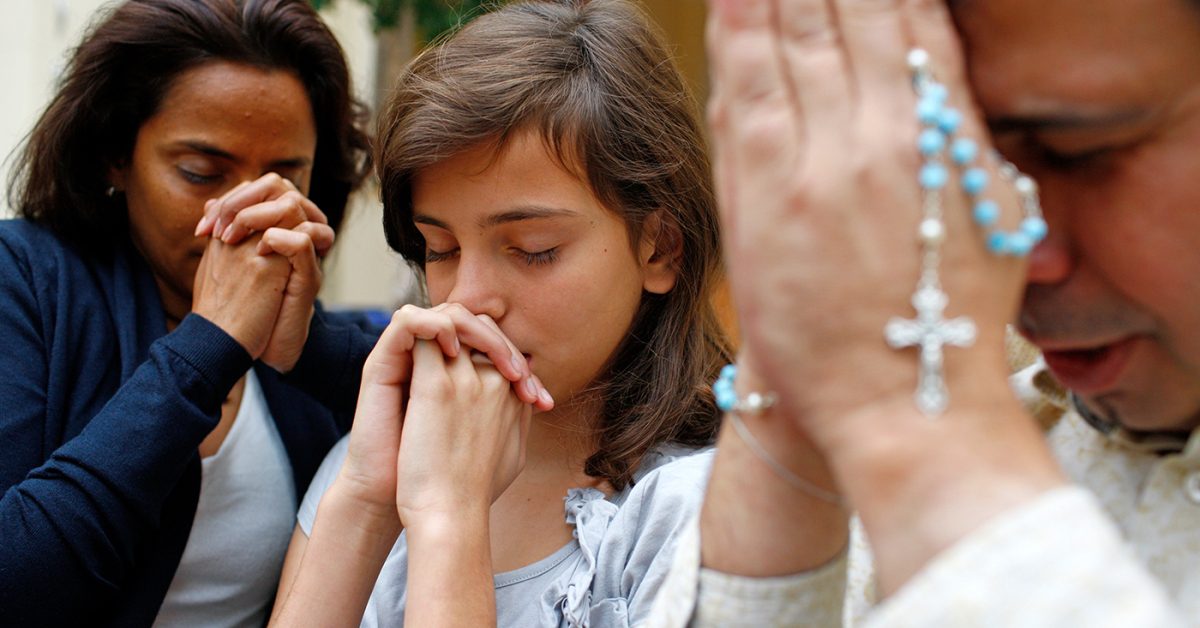Whether it is the Islamic Hajj or Christian baptism, Jewish Bar/Bat Mitzvah or Hindu Navratri, these ceremonies hold deep spiritual significance for those who observe them. They offer a way to connect with the divine and seek spiritual renewal. As people gather to celebrate these events, they strengthen their bonds with their community and their faith, finding solace and guidance in the ancient traditions that have guided humans for centuries.
10 Religious Rituals and Ceremonies with Deep Spiritual Significance
Religion has been an integral part of human life since the dawn of civilization. Rituals and ceremonies are a significant part of religious practice and play an important role in the spiritual and emotional growth of individuals. These ceremonies provide a sense of community, tradition, and personal connection to a higher power. Here is a list of ten religious rituals and ceremonies from around the world, with deep spiritual significance.
1. Baptism
Baptism is a Christian sacrament that involves the symbolic washing away of sins and initiation into the church. It is believed to be a rebirth in Christ and a way of receiving the Holy Spirit. Water is used as a symbol of purification, and the ritual is performed by immersing the person in water or pouring water over their head. This ceremony represents the beginning of a new life in Christ and a commitment to live according to the teachings of the Bible.
2. Hajj
Hajj is an Islamic pilgrimage to Mecca, the holiest city in Islam. Every year, millions of Muslims from around the world gather in Mecca to perform this ritual. The pilgrimage involves visiting holy sites, performing specific rituals, and offering prayers in a specific way. This pilgrimage represents a spiritual journey towards God, and it is considered one of the five pillars of Islam.
3. Bar/Bat Mitzvah
Bar/Bat Mitzvah is a Jewish coming-of-age ceremony that celebrates a boy or a girl’s passage into adulthood. It is usually celebrated at the age of 13 for boys and 12 for girls. The ceremony involves reciting prayers, reading from the Torah, and giving a speech. It represents a significant milestone in a person’s life and a commitment to uphold the traditions and values of Judaism.
4. Durga Puja
Durga Puja is a Hindu festival that celebrates the goddess Durga’s victory over evil. It is the most important festival in Bengal, India, and is celebrated for ten days. The festival involves decorating the streets and homes with lights and flowers, performing rituals, and offering prayers to the goddess Durga. It represents the triumph of good over evil and the power of the divine.
5. Yom Kippur
Yom Kippur is a Jewish holy day that is also known as the Day of Atonement. It is a day of fasting, prayer, and repentance, and it is celebrated on the tenth day of the Jewish calendar. The day is dedicated to seeking forgiveness for sins and making amends with others. It represents a time of purification and spiritual renewal.
6. Diwali
Diwali is a Hindu festival of lights that celebrates the victory of good over evil. It is celebrated for five days and involves lighting candles, exchanging gifts, and performing rituals. The festival represents the triumph of light over darkness and the power of knowledge over ignorance. It is a time of joy and celebration, and it brings people closer to their families and communities.
7. Passover
Passover is a Jewish holiday that commemorates the Israelites’ liberation from slavery in Egypt. It is celebrated for eight days and involves eating unleavened bread, reciting prayers, and telling the story of the Exodus. The festival represents a time of remembrance, freedom, and redemption.
8. Navratri
Navratri is a Hindu festival that celebrates the goddess Durga’s victory over evil. It is celebrated for nine days and involves fasting, performing rituals, and offering prayers to the goddess Durga. The festival represents the power of the divine, and it is a time of spiritual growth and renewal.
9. Ramadan
Ramadan is an Islamic holy month that involves fasting from dawn to sunset. It is a time of spiritual reflection, self-discipline, and generosity. The month is dedicated to seeking forgiveness for sins, performing good deeds, and strengthening one’s faith. It represents a time of purification and spiritual growth.
10. Christmas
Christmas is a Christian holiday that celebrates the birth of Jesus Christ. It is celebrated on December 25th and involves decorating homes and churches with lights and ornaments, exchanging gifts, and performing rituals. The holiday represents the love and compassion of God, and it is a time of joy and celebration.
In conclusion, religious rituals and ceremonies are an essential aspect of spiritual and emotional growth. These rituals provide a sense of community, tradition, and personal connection to a higher power. They represent a time of purification, spiritual growth, and renewal. By celebrating these ceremonies, people can connect with their faith and embrace their cultural heritage.
